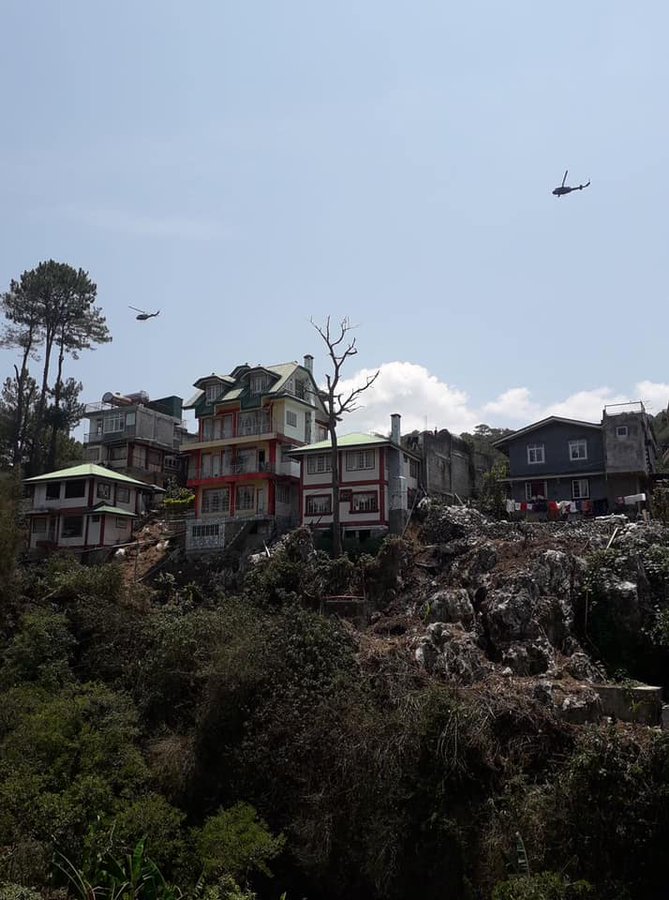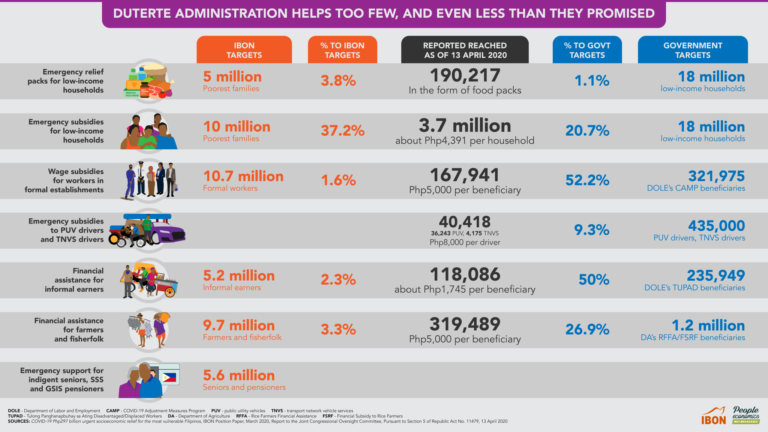In this timeline, Bulatlat enumerates all attempts to curtail free speech and press freedom while the country is placed under the enhanced community quarantine due to COVID-19 pandemic.
By ALYSSA MAE CLARIN
Bulatlat.com
MANILA– While Article 3 Section 4 of the 1987 Constitution assures that no law shall be passed abridging the freedom of speech and of expression, the ‘fake news’ provision under the Bayanihan to Heal as One Act can be used to threaten citizens who air out their grievances and criticism against the government’s response to the COVID-19 pandemic
The Senate and the House of Representatives simultaneously approved March 24 Bayanihan to Heal as One Act of 2020, granting President Rodrigo Duterte emergency powers to address the current health emergency.
Section 6 (6) of the law penalizes “individuals or groups creating, perpetrating, or spreading false information regarding the COVID-19 crisis on social media and other platforms,” with imprisonment of two months and/or a fine no less than 10,000 pesos.
March 16, 2020: Duterte declares Luzon-wide ‘enhanced community quarantine’ to prevent the coronavirus pandemic to spread further. At the same time, the Inter-Agency Task Force for the Management of Emerging Infectious Diseases (IATF-IED) orders that journalists should first secure accreditation from the Presidential Communications Operations Office (PCOO) within 72 hours in order to enter restricted areas during the quarantine.
March 17, 2020: Journalists, advocates and members of the academe call for the removal of the media accreditation guidelines, and argue that an additional identification is ‘redundant’ and the usual press ID should be enough.
See: NUJP asks Palace to reconsider media accreditation amid COVID-19 outbreak
Academe, media groups urge PCOO to rescind media accreditation
March 21, 2020: Duterte issues Proclamation No. 933 asking the Congress to conduct a special session and deliberate on a proposed bill that would declare a ‘national emergency’ and grant him emergency powers ‘necessary’ to combat the COVID-19 pandemic.
In a similar note, a letter signed by Executive Secretary Salvador Medialdea is given to Senate President Vicente Sotto III, asking for the Senate’s own deliberation of the proposed bill.
March 23, 2020: The House of Representatives of the Whole conducts a special session, passing House Bill no. 6616, declaring the country under ‘national emergency’, as well as providing for the executive emergency powers ‘for a limited period and subject to restrictions.’
During the deliberation, netizens reject the idea of granting Duterte emergency powers. Using the hashtag #NoToEmergencyPowers, several netizens point out that approving the proposed bill is an ‘abuse of power’ especially since Duterte has failed to fully utilize existing powers and resources at his disposal.
March 24, 2020: Just a day after getting the approval of the House, the Senate approves Senate Bill no. 1418, or the Bayanihan to Heal as One Act of 2020.
March 26, 2020: Philippine National Police files charges against four individuals who had allegedly shared false information in their social media accounts. All individuals are now facing charges violating the Anti-Cybercrime Law.
March 27, 2020: In General Santos City, a 55-year-old public school teacher Juliet Espinosa is arrested, along with her teenage son, after she posted a statement criticizing the General Santos City mayor’s incompetence. Authorities said that Espinosa is facing charges violating Article 142 of the Revised Penal Code or Inciting to Sedition.
April 1, 2020: National Bureau of Investigation (NBI) issues a subpoena to a Filipino citizen based on a social media post allegedly questioning the government spending.
Human rights lawyer Chel Diokno takes on a case of one of the netizens, and calls out how the government would rather silence critics than deliberate more important matters.
NBI also issues summons to ‘more than a dozen of people’ over their social media posts relating to the coronavirus.
April 2, 2020: During the second episode of Bulatlatan, Josalee Deinla, spokesperson of the National Union of Peoples’ Lawyers (NUPL), say that the constitutionality of the ‘fake news’ provision can be questioned and contested in the Supreme Court.
See: Constitutionality of ‘fake news’ provision can be challenged — lawyer
April 5, 2020: Joshua Molo, editor-in-chief of University of the East Dawn is threatened with libel and forced to do a public apology for posting critical comments about the administration.
(See: Campus editor threatened with libel for criticizing gov’t response on COVID-19)
April 6, 2020: PNP arrests over 32 individuals for allegedly spreading ‘fake news’ in social media.The accused are now facing charges of violating “Unlawful Use of Means of Publication and Unlawful Utterances” under Article 154 of the Revised Penal Code.
April 6, 2020: Armed police storm the community kitchen in Sitio San Roque, and intimidate and question the residents about the program and the placards displayed in the area. Policemen confiscate and tear up the placard of the residents’ call for support and aid during the outbreak.
Vague ‘fake information’ provision will only penalize free speech
Multiple groups question the need and legality of such provision, saying that Section 6 does not even exist legally as fake news is not defined by any existing laws, and approving such provision would leave the contemplation of the ‘crime’ to the hands of the authorities.
See:“Fake news” provision threatens freedom of the press, expression
Digital rights groups also express their concern about this provision, and question the ‘haphazardly approved’ law that penalizes ‘fake news’ under the Bayanihan to Heal as One Act.
“While the provision appears to address the long-standing concern of journalists and activists over false information, which are typically circulated by paid trolling, it can also be used to curtail free speech, especially pieces of information that are critical of the government,” said the groups’ joint statement.
“The damages wrought upon it by fake news prior to the pandemic can only be repaired by promoting critical discourses. Make it healthy by keeping it free.”
April 15, 2020: Students of the University of Sto. Tomas (UST) who spoke against the university’s decision to continue its semester through online classes receive notices from the administration saying that their actions can ‘incur disciplinary action.’
The post TIMELINE: Attacks on free speech, press freedom during COVID-19 lockdown appeared first on Bulatlat.







